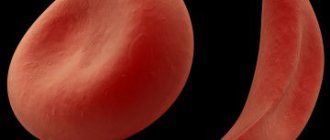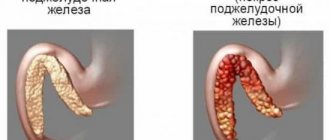In this article we will tell you:
- The role of vitamin B12
- Metabolism of vitamin B12 in the human body
- Foods rich in vitamin B12
- Deficiency Symptoms
- Risk factors for vitamin B12 deficiency
- Deficiency diagnosis
- Summary of Laboratory Tests to Assess Vitamin B12 Deficiency
- Recommended daily dose of vitamin B12
- How to compensate for vitamin B12 deficiency
One of the most important nutrients for the human body is cobalamin, known as vitamin B12. Until recently, it was mentioned only briefly and only in the context of the health of the nervous system. Subsequent discoveries made it possible to boldly declare: the role of vitamin B12 was greatly devalued. The formation of blood cells, regulation of gene function, prevention of cardiovascular diseases and even a protective effect against coronavirus infection - the use of cobalamin should definitely not be limited to the practice of neurologists.
The role of vitamin B12
Cofactor function
The wide range of effects exerted by vitamin B12 is associated with its cofactor function - it acts as a helper molecule for two different enzymes. The first of them, methionine synthase, neutralizes the amino acid homocysteine, the accumulation of which is recognized as an important risk factor for cardiovascular diseases: atherosclerosis, stroke and thrombosis. In addition, the same enzyme contributes to the formation of building blocks in the DNA molecule; neutralization of histamine (inflammatory mediator) and sex hormones; supports the exchange of serotonin, dopamine and other neurotransmitters; regulates the functioning of genes.
The second enzyme, whose work directly depends on vitamin B12, is involved in the neutralization of toxic methylmalonic acid, which damages the outer membrane of the nerves and thereby disrupts the conduction of nerve impulses.
Support mental health and cognitive function
Today it is reliably known that homocysteine affects not only the functioning of the cardiovascular system, but also the conductor of the whole organism - the brain.
Nerve cells are extremely vulnerable to damage due to the brain's high oxygen consumption, significant concentrations of iron and lipids that can be oxidized, and relatively low antioxidant activity. In other words, it is a kind of powder keg, and homocysteine is the lit match, causing a powerful explosion and subsequent fire in the form of oxidative stress, leading to cognitive impairment, dementia and behavioral disorders.
Study
: Vitamin B12 and health
Hematopoiesis
In the red bone marrow, the factory for the formation of blood cells, vitamin B12 activates the division of red blood cell precursors. Under conditions of its deficiency, they continue to grow, but do not divide—giant immature red blood cells—megaloblasts—are formed.
Prevention of osteoporosis
A number of researchers have proposed considering the accumulation of homocysteine in the body as a new risk factor for osteoporosis.
Osteoporosis
is a skeletal disease characterized by impairment of bone mineral density, structure, and strength, leading to an increased risk of fractures.
Study
: Hyperhomocysteinemia is Associated with Inflammation, Bone Resorption, Vitamin B12 and Folate Deficiency and MTHFR C677T Polymorphism in Postmenopausal Women with Decreased Bone Mineral Density
High homocysteine levels (in the setting of B vitamin deficiency - especially B9 and B12) have been noted to increase the risk of fractures, but have little effect on bone mineral density. Presumably, this is due to the accumulation of this amino acid in the bones and its binding to collagen, one of the main proteins of bone tissue.
Study
: The role of hyperhomocysteinemia as well as folate, vitamin B(6) and B(12) deficiencies in osteoporosis: a systematic review
Metabolism of vitamin B12 in the human body
Cobalamin metabolism is complex - a healthy body absorbs no more than 50% of the vitamin supplied with food.
Study
: Vitamin B12 sources and bioavailability
Moreover, not only the content, but also the bioavailability (i.e., the ability to be absorbed) of vitamin B12 varies quite widely depending on the type of product and even the type of meat:
| type of product | Bioavailability |
| Fish | 42% |
| Mutton | 56%-89% |
| Chicken | 61%-66% |
| Eggs | <9% |
Cobalamin found in food is tightly bound to proteins, so hydrochloric acid and gastric juice enzymes are critical for the release of vitamin B12. Free cobalamin in the stomach forms complexes with other protein molecules (glycoproteins) and moves to the initial part of the small intestine - the duodenum. Here, under the action of enzymes in pancreatic juice, the complexes are destroyed, and vitamin B12 binds to the intrinsic Castle factor, a protein that ensures the absorption of B12 in the intestine.
Cobalamin is the only water-soluble vitamin that accumulates in the human body: from 50 to 90% of its reserves are concentrated in the liver. The presence of vitamin B12 reserves causes the later appearance of clinical symptoms of deficiency: they often appear only after several years.
Study
: The Neuropsychiatry of Vitamin B12 Deficiency in Elderly Patients
Thus, maintaining adequate levels of vitamin B12 in the body depends on a number of factors
:
- normal secretion of gastric juice;
- enzymatic function of the pancreas;
- functional state of the liver and intestines;
- contractile activity of the gallbladder.
We recommend
“What to eat for breakfast with proper nutrition: ideas for healthy breakfasts for the whole family” Read more
Indications for the purpose of the study
Vitamin B12 is the common name for two chemical variants of the cobalamin molecule (cyanocobalamin, hydroxocobalamin), which are converted into active compounds in the body.
Sometimes vitamin B12 is understood as a combination of the four most studied forms of chemical varieties of cobalamin containing cobalt (cyanocobalamin, hydroxocobalamin, methylcobalamin, adenosylcobalamin).
In the literature, vitamin B12 usually means cyanocobalamin, since it is in this form that a significant part of vitamin B12 enters the human body.
The vitamin B12 molecule is the largest of all vitamin molecules and the only one in living nature that contains a metal atom (cobalt).
Vitamin B12 is the only vitamin that is synthesized in nature exclusively by microorganisms and deposited in the liver.
Cyanocobalamin enters the human body with food of animal origin, and its main sources are animal liver, fish, eggs and dairy products. Vegetables and fruits do not contain vitamin B12.
Cobalamin levels depend on how much of the vitamin comes from food, how much is excreted, and how much is consumed by the body.
With a balanced diet, a person receives from 5 to 15 mcg of vitamin B12 daily. The daily requirement for vitamin B12 for adults is from 2 to 3 mcg/day, for children – from 0.3 to 1.4 mcg/day. During pregnancy and lactation, the body's daily need for vitamin B12 increases to 7.6 mcg/day. After the cessation of vitamin intake into the human body, its deficiency (up to anemia) develops over several years. The incidence of vitamin B12 deficiency in the age group over 60 years is 40%.
Absorption of cobalamin occurs in the intestine in the presence of a specific enzyme - intrinsic factor of Castle, which is synthesized by the cells of the gastric mucosa. Vitamin B12 supplied with food binds to this enzyme, and the resulting complex interacts with the receptors of the cells of the ileal mucosa. During absorption, the complex disintegrates - vitamin B12 penetrates through the wall of the small intestine into the bloodstream, where it binds to a transport protein that delivers it to consumer cells. Unclaimed cobalamin accumulates in reserve - mainly in the liver, but also in the spleen, lungs and kidneys.
Vitamin B12 is involved in the maturation of red blood cells, in the processing of homocysteine, the metabolism of folate, vitamin D, cholesterol, etc. Thanks to vitamin B12, blood cells, mucous membranes, and skin are renewed.
With vitamin B12 deficiency, an ineffective type of hematopoiesis develops: red blood cell precursor cells grow but do not divide, resulting in the formation of small numbers of giant red blood cells. Megaloblastic anemia develops.
Vitamin B12 deficiency causes changes and damage to neurons in the brain and spinal cord, which can result in physical, neurological and mental disorders.
In medicine, cyanocobalamin is used to treat anemia, polyneuritis, multiple sclerosis, radiculitis, and normalize lipid metabolism. It has been established that the administration of high doses of the vitamin significantly reduces the progression of atherosclerosis in the early stages of the process. In pediatrics, vitamin B12 is used to treat low birth weight newborns.
The use of B vitamins can reduce the content of homocysteine in the blood, which damages the walls of blood vessels, making their surface loose. Cholesterol and calcium are deposited on the damaged surface, forming an atherosclerotic plaque. Elevated homocysteine levels increase the risk of thrombosis. For a 2.5 μmol/L increase in plasma homocysteine levels, the risk of myocardial infarction increases by 10% and the risk of stroke by 20%.
Thus, the following indications are distinguished for determining the level of vitamin B12:
- diagnosis of anemia;
- diagnosis of vitamin B12 absorption disorders;
- monitoring vitamin levels during a strict vegetarian diet;
- diagnosis of congenital forms of vitamin B12 deficiency;
- monitoring the level of vitamin B12 during the treatment of neurological and mental diseases, in oncological practice;
- age over 50 years;
- after surgical interventions on the gastrointestinal tract (gastrectomy, extensive resections of the small intestine).
Foods rich in vitamin B12
When calculating daily intake, it is necessary to take into account the bioavailability of B 12 from specific products (see above).
| Products | Vitamin B12 content per 100 g of product |
| Shellfish | 98.9 mcg |
| Beef liver (raw) | 59.3 mcg |
| Goose liver | 54.0 mcg |
| Octopus | 36.0 mcg |
| Turkey liver | 28.2 mcg |
| Pork liver | 26.0 mcg |
| Chicken liver (raw) | 16.6 mcg |
| Herring | 13.7 mcg |
| Mussels | 12.0 mcg |
| Mackerel | 8.7 mcg |
| Trout | 7.8 mcg |
| Chicken hearts | 7.3 mcg |
| Rabbit meat | 7.2 mcg |
| Chicken egg yolk | 5.1 mcg |
Deficiency Symptoms
Typically, manifestations of vitamin B12 deficiency manifest with general anemic syndrome, which is characterized by
:
- yellowish tint to the skin or pallor;
- dyspnea;
- dizziness;
- cardiopalmus.
In addition, manifestations accompanying cobalamin deficiency are
:
- hair loss;
- bowel dysfunction (diarrhea);
- lack of appetite;
- muscle weakness and decreased muscle tone;
- pigmentation;
- an increase in the size of the liver and spleen on ultrasound;
- “varnished” tongue (atrophy of taste buds);
- lack of motivation and energy.
Disorders of the nervous system deserve special attention. Neurological symptoms are later (although in some cases they precede the development of anemia) and, as a rule, are irreversible. Damage to the genetic material of cells, increased excitability of neurons and disruption of electrolyte metabolism in them, inhibition of the formation of new nerve connections - all these consequences of insufficient intake of vitamin B12 in the body underlie the development of dementia - including Alzheimer's disease. A growing body of research also points to a direct link between cobalamin deficiency and the development of depression.
Study
: Effects of vitamin B12 and folate deficiency on brain development in children
Vitamin B12 deficiency has a particularly acute effect on newborns and young children: as is known, brain development begins in utero and continues until school age. Cobalamin deficiency leads to impaired myelination of nerve fibers and changes in the speed of impulses, thereby having a significant impact on the functioning of the central nervous system. As a result, slower conduction in the auditory and visual systems will interfere with learning and social interaction.
Risk factors for vitamin B12 deficiency
Reduced intake of vitamin B12 from food
- vegetarian diet;
- chronic alcoholism;
- old age.
An unbalanced vegetarian diet may be associated with a lack of nutrients, the content and/or bioavailability of which in plant foods is low (this applies to iron, zinc, vitamin D, omega-3 fatty acids and vitamin B12).
In older people, vitamin B12 deficiency is often caused by
:
- malnutrition;
- malabsorption syndrome;
- inflammation of the gastric mucosa (which increases with age) and leads to a decrease (and sometimes complete cessation) of the secretion of hydrochloric acid, necessary for the release of protein-bound vitamin B12.
Autoimmune thyroid diseases
According to research, vitamin B12 deficiency occurs in 46% of patients with autoimmune thyroiditis. In addition, there is a negative correlation between the levels of vitamin B12 and antibodies to the structural elements of the thyroid gland. It is assumed that this connection is due to the presence of autoimmune gastritis: as is known, autoimmune diseases are often combined.
Study
: Vitamin B12 and Vitamin D Levels in Patients with Autoimmune Hypothyroidism and Their Correlation with Anti-Thyroid Peroxidase Antibodies
Increased need for cobalamin
It has been established that during pregnancy and lactation the need for cobalamin increases several times, and its content progressively decreases.
We recommend
“The benefits of grapes: vitamin content, calorie content and recommendations for consumption” Read more
Condition of the human digestive system
The status of vitamin B12 is largely determined not only by a balanced diet, but also by the state of the human digestive system and the presence of all the conditions necessary for its absorption. Various factors and pathological processes disrupt the release and absorption of B12, contributing to the development of its deficiency.
Study
: Modern possibilities for diagnosing and treating vitamin B12 deficiency
| Cause | Pathological condition |
| Violation of the secretion of gastric juice or changes in its acidity: |
|
| Intestinal malabsorption: |
|
Taking a number of medications
- metformin;
- antacids;
- H2 blockers;
- proton pump inhibitors;
- colchicine;
- cholestyramine;
- anticonvulsants and a number of antibiotics.
A number of genetic disorders
- transcobalamin II deficiency;
- intrinsic factor Castle deficiency/defect;
- mutation in the CG1 gene.
Targeted nutrition tips
that will increase your energy level by 10 out of 10
From TOP nutritionists of the MIIN
Get tips
Why does excess vitamin B12 occur?
Let us clarify once again: its excessive accumulation in the plasma of constantly circulating blood is practically impossible, although it does occur in clinical practice. But cases of hypercobalaminemia are always preceded by one of the transport disorders of this vitamin - the nutritional compound is delivered to the cells using transcobalamins. These are proteins that bind up to 80% of b12 so that the nutrient is delivered to targets with minimal loss and provide the vitamin with optimal uptake by tissues and the liver.
An exceptional fact: of all the water-soluble vitamins, only Cyanocobalamin has the ability to be slightly synthesized in the body and accumulate in the liver. Apart from b12, no other type of B vitamins has such properties.
Why does excess Cyanocobalamin accumulate?
- Excessive consumption of vitamins, duplication of b12 in different compositions
This phenomenon cannot be called widespread, since even when the vitamin is prescribed in different dosage forms (for example, injections against the background of self-administration of nutrients), the compound is constantly excreted through the urinary system.
- Release of the vitamin from the internal depot (liver) while taking nutrient complexes
Since b12 is the only water-soluble vitamin that can accumulate in the liver, during temporary or chronic diseases the nutrient may be released. With a simultaneous course of taking Cyanocobalamin, a temporary excess in the blood plasma may occur.
- Violations of vitamin excretion and its binding functions
In this case, it is worth suspecting pathologies of the liver and kidneys, as well as the inability of the vitamin to bind to proteins that act as a carrier of nutrient compounds.
How it works
A sufficient amount of vitamin B12 for metabolic balance can only be obtained through food: a varied diet and/or intake as part of nutrient complexes. In the body, multiple biochemical reactions occur with Cyanocobalamin, starting from entry into the stomach. At the moment when b12 is in the blood, about 30% of its volume will react with transcobalamins responsible for delivery, and the rest will react with other proteins.
The norm is when the transport protein receives cobalamin, carries it to the cell, and gives it to the cell.
Pathology - the transport protein performs the main part of this program, but for some reason cannot give b12 to the cell. There is an “overload” of the transport protein with the vitamin, so the nutrient becomes more and more in the blood plasma. There may also be a lack of production of the transport proteins themselves.
Failure in the production of transport and binding proteins is one of the reasons for the rare, but still existing hypercobalaminemia syndrome.
Due to the insufficient spread of the syndrome, understanding all the mechanisms leading to increased concentrations of the antianemic vitamin is still difficult. However, available data indicate a close connection between hypercobalaminemia and congenital disorders of transport and binding proteins.
Studies confirm the close connection between high levels of vitamin B12 and malformations of the nervous system and hematological disorders. That is, the early stages of a number of diseases can be recognized by the level of Cyanocobalamin. Disorders of transport or the production of transport proteins themselves are hereditary.
How to find out your vitamin B12 level – are there any symptoms?
We would like to draw your attention to the particular importance of the information - hematopoiesis processes are closely related to vitamin B12, the nutritional compound is an external Castle factor. Simply put, this is the name for all substances that stimulate and support hematopoiesis, that is, the production of blood cells.
Any group of vitamins that deviate significantly from normal levels will activate symptoms associated with the underlying activity of the compounds. Regarding Cyanocobalamin in high concentrations, these are symptoms accompanying hematological pathologies, liver diseases - cirrhosis, hepatitis, etc.
The simplest, most accessible and reliable method of monitoring vitamin levels is blood tests. To monitor vitamin B12 levels, three types of studies are used:
- Biochemical - among all parameters, the level of certain nutrients is assessed, among which the concentration of b12 is mandatory;
- Total vitamin B12 level - this test can be performed separately, shows the content of the nutrient in the blood serum;
- Holotranscobalamin – HoloTC or active B12, that is, the biologically active form already associated with the transport protein.
For any deviations from the norm, upward or downward, it will be necessary to find out the reasons - what exactly led to the imbalance of the vitamin. In case of high indicators, additional types of examinations are prescribed: liver health, diagnostic screening of hereditary factors, etc.
If hyperconcentration of cobalamin is a rather rare phenomenon, then you are more likely to encounter a vitamin in the deficiency phase. Vitamin deficiency can be determined using the same tests, but focusing only on symptoms is not the most reliable method, since signs of B12 deficiency appear already in the later stages.
A deficiency of Cyanocobalamin requires close attention because the unique characteristics of this vitamin allow it to accumulate in the liver and be released into the blood when necessary. If reserves are depleted and the external supply of nutrients is reduced, tests are prescribed that will help explain this phenomenon.
Deficiency diagnosis
- Determining the level of vitamin B12 in the blood does not reflect the intracellular concentration of vitamin B12 and the performance of its biological function. Therefore, one can rely on laboratory determination of B12 in blood serum only to identify a significant deficiency.
- Laboratory reference: 189-833 pg/ml.
- Optimal values: from 600 and above.
- Cobalamin deficiency can be indirectly judged by the level homocysteine
(but it can also reflect a deficiency of folic acid and vitamin B2) - it is optimal that its values do not exceed 7 µmol/l.
- A fairly characteristic picture in a general blood test:
- increase (closer to the upper limit of the reference) MCV
- average volume of erythrocytes.
- The most sensitive marker of vitamin B12 deficiency is an increase in methylmalonic acid, a test for organic acids in urine.
However, it should be remembered that the concentration of methylmalonic acid often increases with kidney pathology. In addition, measuring its levels during concomitant use of antibiotics is not indicative (the number of bacteria that form methylmalonic acid precursors decreases).
Study
: The neuropsychiatry of vitamin B12 deficiency in elderly patients
References
- Demikhov, V.G., Skobin, V.B., Zhurina, O.N. and others. Federal clinical guidelines for the diagnosis and treatment of anemia caused by B12 deficiency, 2014. - 8 p.
- Clinical oncohematology: a practical guide / ed. M.A. Volkova M.A., 2001. -576 p.
- Arthur, C., John, E. Textbook of Medical Physiology. 13th Edition, 2015. - p. 980-987.
- Kumar, V., Abbas, A., Aster, J. Robbins and Cotran Pathologic Basis of Disease, 2014. - Vol. 1(9). — 1408 p.
- O'Leary, F., Samman, S. Vitamin B12 in health and disease. Nutrients, 2010. - Vol. 2(3). — P. 299-316.
Summary of Laboratory Tests to Assess Vitamin B12 Deficiency
| Laboratory test | Rationale for the test | Advantages | Flaws |
| Serum cobalamin | Decreased levels due to vitamin B12 deficiency | Available, low price. easy to interpret | Not reliable in assessing the effectiveness of the biological function of the vitamin |
| Methimalonic acid | Increased with vitamin B12 deficiency | High sensitivity | It is necessary to consider other factors affecting the metabolism of methylmalonic acid, high cost. |
| Total homocysteine | Increased with vitamin B12 deficiency | High sensitivity | Low specificity, increases under the influence of lifestyle factors (smoking, drinking alcohol, coffee). Requires assessment of genetic characteristics (methylation cycle). |
| Holotranscobalmin | Decreased in vitamin B12 deficiency New test, clinical utility unclear. | High sensitivity. | It can serve as an indicator of the supply of vitamin B 12, based on the amount of transport protein that carries the active form of B12. BUT: the active form of the vitamin is a very variable value. |
Recommended daily dose of vitamin B12
(after K. Astill-Smith and K. Reardon)
- 0-6 months: 0.4 mcg
- 7-12 months: 0.5 mcg
- 1-3 years: 0.9 mcg
- 4-8 years: 1.2 mcg
- 9-13 years: 1.8 mcg
- 14 years and older: 2.4 mcg
- Pregnancy: 2.6 mcg
- Breastfeeding: 2.8 mcg
Daily value of vitamin B12: 6 mcg
What else is prescribed with this study?
B vitamins (B1,B2,B3,B5,B6,B9,B12)
4.23.1. Ven. blood 7 days
13 150 ₽ Add to cart
Homocysteine
1.53. Ven. blood 1 day
1,900 ₽ Add to cart
Complete blood count without leukocyte formula (venous blood)
3.1.1. Ven. blood 1 day
340 ₽ Add to cart
Folates
4.3. Ven. blood 1 day
1 110 ₽ Add to cart
How to compensate for vitamin B12 deficiency?
The main task facing a nutritionist is to find and determine the cause that caused the cobalamin deficiency. So, in some cases, it is enough to review the diet and make appropriate adjustments to it: for example, increase the amount of animal products consumed.
If the problem is caused by a pathology in the digestive system, the work should be comprehensive: in collaboration with a gastroenterologist. The nutritionist offers recommendations for healing mucous membranes, improving the functioning of the digestive tract, normalizing stomach acidity to activate the Castle factor.
Gastrointestinal pathologies must be taken into account when selecting the method of administering cobalamin: for example, for lesions of the gastric mucosa, the sublingual (sublingual) form, which does not require the presence of hydrochloric acid, will be optimal. In addition, with concomitant infection with Helicobacter pylori, a nutritionist can recommend natural antimicrobial drugs or a combination of them: grapefruit seed extract, oregano, colloidal silver, etc.
If vitamin B12 deficiency has developed against the background of parasitosis, then the main link in the protocols should be aimed at restoring natural protective barriers and antimicrobial factors
:
- restoration of the integrity of mucous membranes;
- correction of the composition and outflow of bile;
- correction of impaired gastric acidity;
- maintaining the adrenal glands (without the hormones they produce, resolution of the inflammatory process is impossible).
Vitamin B12 supplements may be considered as maintenance therapy. Although the most active form is methyl-cobalamin, in some cases (for example, with the COMT++ mutation) it is recommended to take adenosylcobalamin or cyanocobalamin. In both cases, it is important to remember that cobalamin competes with many B vitamins, so it should be taken separately.
Preparation for the procedure
- It is recommended to donate blood in the morning from 8 to 11 o’clock, on an empty stomach (at least 8 hours of fasting), you can drink water as usual.
- Agree with the doctor who ordered the test on the list of medications you are taking that may affect the test result.
- Avoid drinking alcohol on the eve of the test and do not smoke for 1 hour before the test.
- Avoid physical and emotional stress the day before the test.
- It is not advisable to donate blood for laboratory testing soon after physiotherapeutic procedures, instrumental examination and other medical interventions.
- When monitoring laboratory parameters over time, it is recommended to conduct repeated studies under the same conditions: in the same laboratory (using the same method) and at approximately the same time of day.






